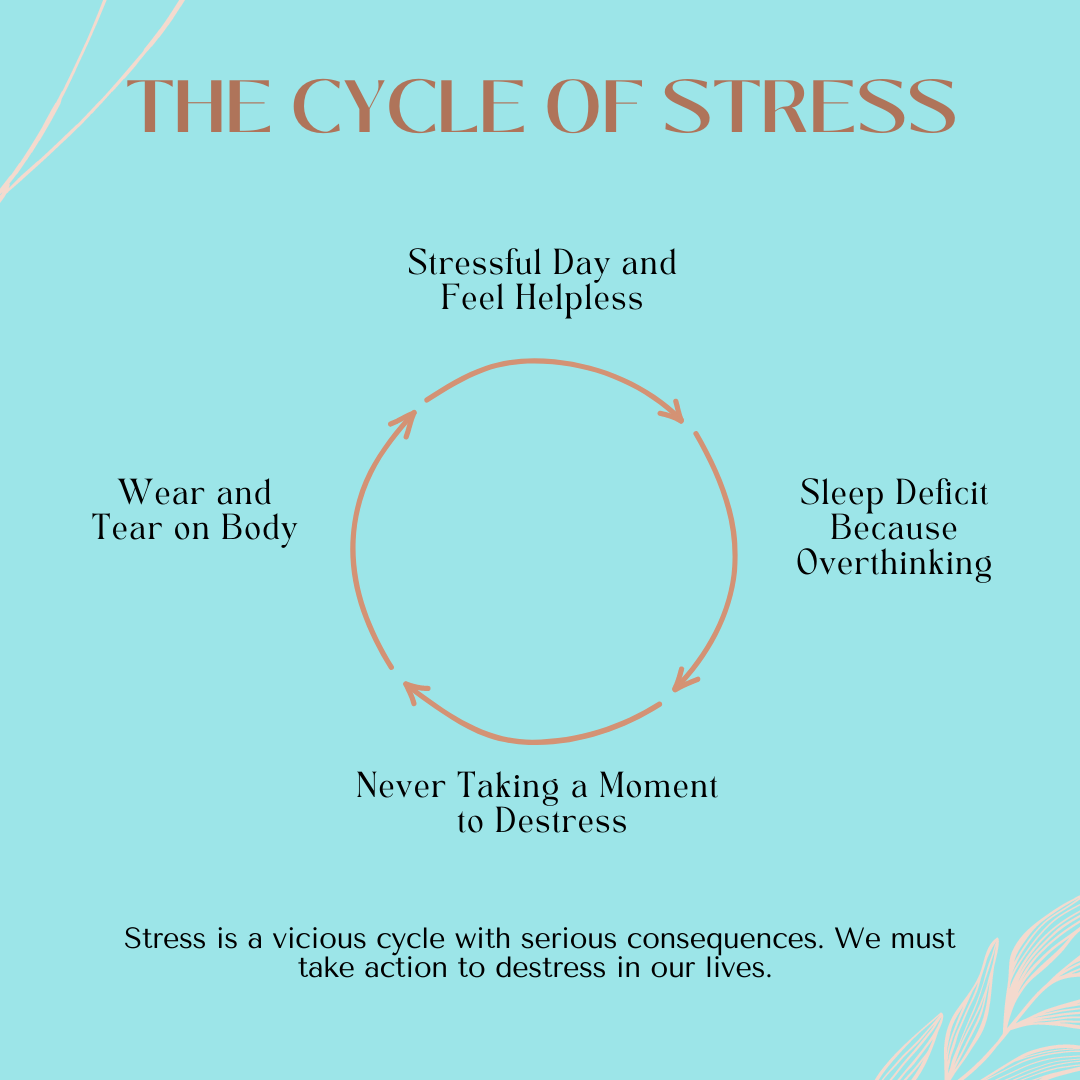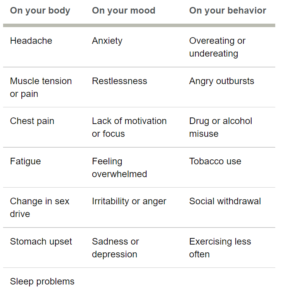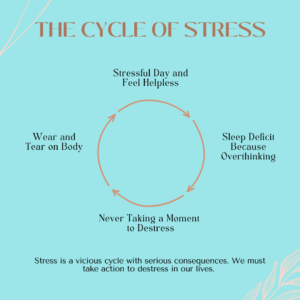How Stress Affects Your Health
First, we want to highlight how stress affects your body, mood, and behavior. Take a look at this table showcasing the common effects of stress from the Mayo Clinic.
Photo Credit: Mayo Clinic
As you can see, stress can cause a variety of symptoms in the body that eventually lead to changes in your mood and behavior.
Additionally, long-term stress with no relief can eventually lead to weight gain, heart disease, heart attack, high blood pressure, stroke, and memory impairment. For more information on how stress affects the body, check out our in-depth blog post about it.
Don’t let your stress ruin your life. Instead, try out these simple methods to reduce stress.
Simple Methods to Reduce Stress
Regular Exercise
It may sound cliche, but regular exercise is excellent for your health and physically reduces your stress on a biological level. You don’t need to be a marathon runner! Walking, jogging, swimming, or playing a sport are all solutions.
Plus, gardening, housecleaning, and other active activities count too!
Eat a Balanced Diet
Eating a proper diet of balanced food groups, nutrients, and vitamins is key to keeping your body in tip-top shape. If you eat poorly –> you feel poorly –> you perform poorly –> you feel more stress. Simple, huh? So, make it a part of your routine to eat well.
Remove Unhealthy Habits
Unhealthy habits like drinking too much caffeine or alcohol, overeating, smoking, drug use, or other such habits will impair your health and affect your stress levels. We recommend cutting out the bad to make room for the good.
Get Plenty of Sleep
Sleeping is when your body and brain recharge and process everything from the day. If you aren’t getting enough sleep, it negatively affects you physically and cognitively. Therefore, make sure to get enough sleep every night so that you wake up refreshed and ready to start the day.
Take Time to Relax
It can be hard with a busy schedule, but we highly recommend scheduling in time to relax. Whether it is an hour or 5 minutes, even a little break can help.
Connect with Friends and Family
You know that age-old saying of “laughter is the best medicine.” It’s because it’s true. Spending quality time with friends, family, and even your pets can reduce stress. (Note: If your family is causing your stress, maybe take a break from them instead.)
Write in a Journal
Sometimes venting your frustrations on paper gets it out of your head and allows you to process those feelings. Writing can be incredibly helpful in reducing stress, so grab a journal, pick up a pen, and let it all out. A simple habit to form is writing for 10 to 15 minutes before you begin your bedtime routine; that way, all those negative thoughts are out of your brain before attempting to sleep.
Pursue a Chill Hobby
If you are an active person who doesn’t do well just sitting down to relax, try pursuing a chill hobby. Whether playing music, sewing, sketching, cooking, or something else, pursue something that allows you to relax and unwind while still keeping your hands productive.
Know When to Seek Help
If you are unsure if stress is the actual cause of your symptoms, we recommend speaking with your doctor to determine if an underlying problem is not yet identified.
Additionally, if you have taken action to reduce stress with no results, it is important to seek help. We recommend speaking with a professional counselor or therapist to identify and treat your concerns.






